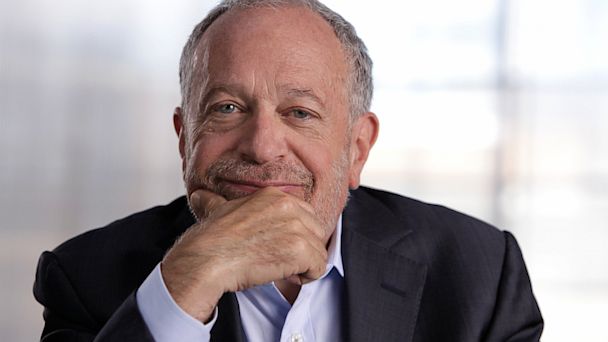Robert Reich: Inequality Behind 'Increasing Divisiveness' in American Politics

Robert Reich
We asked former Clinton Labor Secretary Robert Reich, star of the new film "Inequality for All" to answer seven questions. Read the conversation below and be sure to like "This Week" on Facebook here and follow the show on Twitter here.
1) Why did you decide to be a part of this film?
Reich: I wanted to get involved because the issue of widening inequality is behind so many of our economic and political problems.
2) So, historically speaking, what is that state of inequality in the United States right now? How severe is it?
Reich: It's worse than it's been in over a century. The 400 richest Americans now have more wealth than the bottom 150 million of us. And 95% of all the economic gains since the recovery began in 2009 have gone to the top 1%. This is a major reason why the recovery has been so anemic - the middle class doesn't have the purchasing power it needs to get the economy moving. And it's also behind the increasing divisiveness of our politics, as many Americans become angry and frustrated because they're working harder than ever but not getting anywhere.
3) What steps, in your mind, could be taken to address inequality in the United States?
Reich: We need to invest more and better in education - including early childhood and affordable higher education; finance this by closing tax loopholes (including "carried interest"), raising the estate tax, and limiting the deductions that the wealthy can take for mortgage interest; exempt the first $15,000 of income from Social Security payroll taxes and lift the ceiling on income subject to social security; raise the minimum wage and expand the earned-income tax credit; constrain Wall Street speculation and make banking boring again; and move to a single-payer health-care system.
4) What do you say to people who might argue that in a capitalist system, "there is going to be inequality. That's the way the system works."
Reich: I'd say, yes, of course. As I noted in "Inequality for All," the issue isn't whether incomes are unequal. Some inequality is necessary and inevitable if people are to have the right incentives to work hard, invent, and innovate. The issue is how much inequality is tolerable - when do we reach the point where so much income and wealth is concentrated in so few hands that the economy begins to suffer because most people don't have the purchasing power to keep it going? And when do we reach the point where our democracy is undermined because those with great income and wealth use it to corrupt the system with campaign contributions, lobbyists, and offers of well-paying jobs to government officials when they retire?
5) You served in the Clinton administration. Would you support a run by Hillary Clinton for the White House?
Reich: Yes.
6) Would she pursue the types of policies that you would support?
Reich: I'm not sure, I haven't asked her.
7) You recently challenged Bill O'Reilly to a debate. Have you heard back from him and what would you hope to accomplish with a face-off?
I'd like to return our public discourse to civility. He has accused me of being a "communist" because he doesn't like some of the policies I've been advocating, but instead of calling me names, he should have the courage and decency to debate our differences.
Watch the trailer - via RADiUS-TWC - below for the new documentary "Inequality for All" and learn more about the film here. You can learn more about University of California-Berkeley professor, Robert Reich, here.